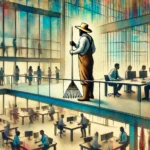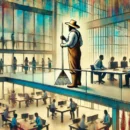Principal shareholders: learn from the woes of a football club
“The owners of the Boston Red Sox have completed a £300 million ($480.1 million) deal to buy Liverpool Football Club, bringing an end to a fractious fight for control of the storied English soccer franchise.
New England Sports Ventures LLC, which owns the Red Sox, announced Friday it had completed its purchase of the Premier League club following a bitter legal fight with Liverpool’s former owners, Tom Hicks and George Gillett.
…The deal was finalized hours after Messrs. Hicks and Gillett abandoned their latest effort to stop the sale, lifting a court order that had blocked the deal earlier in the week.
But the former owners sharply criticized the sale, which they branded “illegal” and an “extraordinary swindle”…”
The Wall Street Journal (15 October 2010)
Is it possible for those who own an organization to be forced out by their own board?
The recent events surrounding Liverpool FC in the UK tell an astonishing story: that it is indeed possible for a board to send principal shareholders packing, and sell the organization to other buyers against the owners’ express wishes.
That is what happened to this famous club, historically England’s most successful – but one that has been in decline for two decades. Tom Hicks and George Gillet have been the owners of Liverpool FC since 2007 – but were bundled out ignominiously after losing various court battles, and were forced to sell at a loss of some £140 million-plus. Their own chairman, along with two executive directors, outvoted the two owners 3-2 and forced the sale.
How can this be, you ask – isn’t the shareholder king? How can those who hold all or most of the shares be tossed out like that? Well, this imbroglio is entirely of Hicks and Gillet’s own doing. They came roaring into the club three years ago with many a false promise: to restore Liverpool’s former glory by building a new stadium and buying the best players. None of that happened. What did happen is that they didn’t even use their own money to buy the club; they borrowed heavily.
When the global recession hit, Hicks & Gillet were unable to meet their interest obligations. To avoid foreclosure, they were forced to restructure their board. The Royal Bank of Scotland made it a condition of extending their repayment period that an independent chairman and two executive directors had to sit on the board. Hicks and Gillet had to sign a special agreement allowing the new board to sanction any reasonable sale of the club. Once that document was signed, the owners’ goose was cooked. The board found a buyer, who promptly offered to pay just enough to clear the debt owed to the banks and provide working capital – and not a cent to the existing shareholders. The courts agreed, and so Liverpool was sold.
This speaks volumes about the role of shareholders, principal or not, in contemporary organizations. Like it or not, modern firms have numerous stakeholders. In this case, the shareholders managed to alienate everybody else: customers, employees, independent directors, banks, judges, the media – everyone and their uncle was united against Hicks & Gillet. The banks could act with impunity, knowing that fans, employees and the press were on their side. When push came to shove, the shareholders had no allies. The fans even launched viral internet campaigns against any bank considering giving Hicks & Gillet a lifeline. Whether they owned the club or not, it was snatched away from them.
And so, principal shareholders across the world: pay heed. It may not matter a damn whether you own the organization. You have to act responsibly and keep your promises. You have to engage with staff and customers. You have to manage your affairs with your financiers. Business is an ecosystem now, in which even the biggest organisms have to be mindful of the whole.

Buy Sunny Bindra's book
UP & AHEAD
here »
Popular Posts
- What is a nation?June 30, 2024
- To be a great leader, think like a farmerJuly 21, 2024
- Don’t be surprised by surprisesJuly 14, 2024
- It takes mavericks to change the gameJuly 7, 2024
- Why we should all be activistsJune 16, 2024















